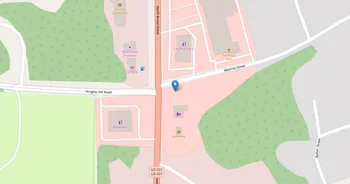Kenneth Shuler School of Cosmetology, Rock Hill : Overview, Courses, Scholarships & Rankings
About Kenneth Shuler School of Cosmetology
Step into Kenneth Shuler School of Cosmetology in Rock Hill and you can feel the buzz of a working salon. The campus is known for hands-on learning in hair, skin, and nail care, pairing studio lessons with client practice and safety-focused habits. A clinic floor, color and skincare labs, and well-stocked stations give students real-world reps. Support runs practical too, with approachable instructors, tutoring, licensing exam guidance, and career advising that helps you plan the next step.
The vibe is creative but grounded, with students swapping techniques, building portfolios, and pitching in at style showcases or community service events. And because Rock Hill sits in a lively corner of the Carolinas, there is access to local salons, photo studios, and plenty of off-campus energy from coffee shops to riverfront trails. The school has a reputation for emphasizing professionalism and customer service, so graduates leave with salon etiquette, business basics, and contacts from area employers and industry visitors.
Key Institutional Details
Contact & Profile
Academic & Institutional
Academic Programs & Fields of Study
Kenneth Shuler School of Cosmetology, Rock Hill offers 2 degree programs across 1 major academic fields, graduating approximately 163 students annually. The most popular fields by graduate volume are Personal Services (2 programs, 163 graduates). Explore program details, award levels, and graduate demographics below.
Personal Services (2 programs, 163 graduates)
Hospitality Management, Culinary Arts and Personal Care
| Program Name | Graduates | Gender Distribution | Award Levels | CIP Code |
|---|---|---|---|---|
| Aesthetician and Skin Care Specialist | 112 |
|
Other Award
|
12.0409 |
| Cosmetology | 51 |
|
Certificate (1-2 yrs)
|
12.0401 |
Tuition, Fees & Estimated Costs
Overview of tuition rates, housing, and other annual education expenses for undergraduate and graduate students
Financial Aid & Student Support
Summary of scholarships, grants, student loans, and financial aid statistics for undergraduate students
Student Success Metrics
Graduation rates and post-graduation earnings to help assess student outcomes and long-term value of education.
Loan Burden & Repayment Outcomes
Breakdown of loan repayment rates and student debt levels by income and dependency status.
Frequently Asked Questions
Find answers to the most common questions about Kenneth Shuler School of Cosmetology, Rock Hill
What academic programs and degree levels does Kenneth Shuler School of Cosmetology, Rock Hill offer?
Kenneth Shuler School of Cosmetology, Rock Hill offers 2 academic programs across 1 major fields of study, with available degree levels: Certificate (1-2 yrs), Other Award.
Most popular program areas include:
- Hospitality Management, Culinary Arts and Personal Care (2 programs)
Data based on IPEDS program completions for 2023-2024 academic year. Numbers reflect programs where students graduated, not all offered programs.
What financial aid and scholarships are available at Kenneth Shuler School of Cosmetology, Rock Hill?
Kenneth Shuler School of Cosmetology, Rock Hill provides financial aid to 18% of first-time, full-time students, with average grants of $4,089 and average loans of $5,730.
Average financial aid amounts by type:
- Pell grants: $4,272
- Institutional grants: $95
- Federal loans: $5,730
The university supports 41 students with grants and 47 students with loans annually.
Data based on IPEDS for 2022-2023 academic year. Financial aid amounts and percentages may vary by program, enrollment status, and individual circumstances.
What is the average salary for Kenneth Shuler School of Cosmetology, Rock Hill graduates?
Kenneth Shuler School of Cosmetology, Rock Hill graduates earn a median salary of $22,309 after 6 years and $23,193 after 10 years.
The salary range 10 years after graduation spans from $10,075 (25th percentile) to $40,412 (75th percentile).
Data based on IPEDS for 2022-2023 academic year. Salary data reflects graduates who received federal financial aid (approximately 60% of all graduates). Actual earnings may vary significantly based on program, location, and individual circumstances.
Related Universities




Found something useful? Help others discover it too! Share with friends, on social media, or save for later - every share helps someone find the information they need.